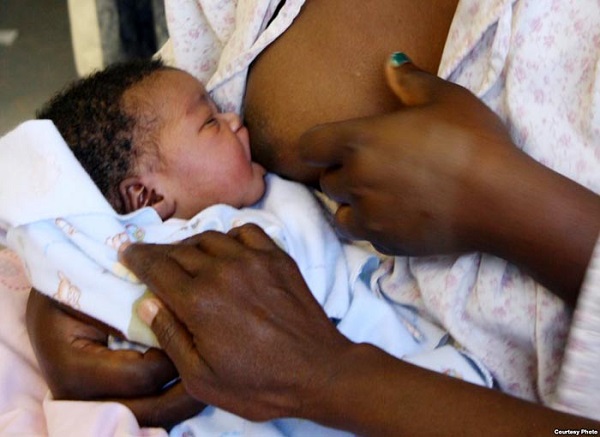
As the seven-day World Breastfeeding Day (WBD) kicked off today, the United Nations International Children’s Emergency Fund (UNICEF) and the World Health Organisation (WHO) have called on governments to allocate increased resources to protect, promote and support breastfeeding policies and programmes, especially for the most vulnerable families in emergency settings.
This call was contained in a joint statement by UNICEF Executive Director Catherine Russell and WHO director-general, Dr. Tedros Ghebreyesus and made available to newsmen.
The 2022 World Breastfeeding Week, themed “Step up for breastfeeding: Educate and Support”, began today, Monday, August 1, 2022 and ends on Sunday, August 7, 2022.
The statement posited that as global crises continue to threaten the health and nutrition of millions of babies and children, the vital importance of breastfeeding as the best possible start in life remained more critical than ever.
During emergencies, including those in Afghanistan, Yemen, Ukraine, the Horn of Africa and the Sahel, breastfeeding guarantees a safe, nutritious and accessible food source for babies and young children. It offers a powerful line of defence against disease and all forms of child malnutrition, including wasting.
Breastfeeding also acts as a baby’s first vaccine, protecting them from common childhood illnesses.
Yet the emotional distress, physical exhaustion, lack of space and privacy, and poor sanitation experienced by mothers in emergency settings mean that many babies are missing out on the benefits of breastfeeding to help them survive.
Fewer than half of all newborn babies are breastfed in the first hour of life, leaving them more vulnerable to disease and death. And only 44 per cent of infants are exclusively breastfed in the first six months of life, short of the World Health Assembly target of 50 per cent by 2025.
Protecting, promoting, and supporting breastfeeding is more important than ever, not just for protecting our planet as the ultimate natural, sustainable, first food system, but also for the survival, growth, and development of millions of infants.
That is why UNICEF and WHO are calling on governments, donors, civil society, and the private sector to step up efforts to prioritise investing in breastfeeding support policies and programmes, especially in fragile and food insecure contexts; Equip health and nutrition workers in facilities and communities with the skills they need to provide quality counselling and practical support to mothers to successfully breastfeed; Protect caregivers and health-care workers from the unethical marketing influence of the formula industry by fully adopting and implementing the International Code of Marketing of Breastmilk Substitutes, including in humanitarian settings and implement family-friendly policies that provide mothers with the time, space, and support they need to breastfeed.


